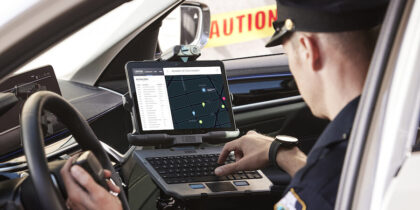The Office of Management and Budget released its draft Federal Data Strategy Action Plan in June, outlining a common set of principles and best practices for putting data into action. In addition to fueling improved citizen services, adopting a more data-centric approach goes right to the core of today’s federal IT modernization efforts to provide agencies the right tools, infrastructure and systems to enhance mission success.
One agency that is leveraging data as a strategic asset is the Department of Energy (DOE). With 17 national labs, 83 field locations, and numerous manufacturing floors, research and development facilities, and program offices across the globe, the agency has a structure and mission that can greatly benefit from enhanced data insights. The DOE recognized the opportunity early on by appointing a chief data officer to help accelerate this shift, and is now actively working on several councils to further integrate data into the agency’s mission, according to FedScoop.
One way the DOE can further augment its data-driven approach is by combining these efforts with a mobile-first strategy. Mobile tools that can be quickly deployed to support powerful mission-oriented applications are central to enabling DOE personnel to collect, manage and share the high-fidelity data. By balancing user flexibility needs with IT data security requirements, smartphones, tablets and other mobile solutions can help DOE personnel quickly, confidently and securely collaborate and transmit information seamlessly across program office, lab, factory or field environments to fuel more efficient and effective operations. Mobility can support many of these data collection efforts.
Collecting and sharing energy information
Whether collaborating with the Department of Homeland Security (DHS) on the joint Pipeline Cybersecurity Initiative to better secure critical infrastructure or gathering information for the U.S. Electric System Operating Data tool to monitor nationwide demand status, access to real-time data is critical to the DOE’s mission.
Enhance Aviation Mission Readiness With Mobile Technology
Get your free guide to powering more intelligent aviation missions using TAA-compliant Samsung tablets. Download Now
Tablets like the enterprise-ready Galaxy Tab S4 can be deployed to help leaders present the latest project developments to teams, save meeting notes for enhanced collaboration, and capture data as personnel travel across sites for audits or manufacturing inspections. For field data collection, in particular, replacing paper-based processes with mobile solutions can significantly speed time-to-value by capturing and sharing information when and where the work happens.
Securing data to protect the nation’s infrastructure
Agencies across the board are evaluating cybersecurity strategies for reducing risk, and the DOE is no exception, as they work to protect the national electric infrastructure. Just last year, the agency released the DOE Multiyear Plan for Energy Sector Cybersecurity, which outlined how the organization will reduce the risk of energy disruptions due to cyber incidents over the next five years.
To address the persistent security challenges outlined in the plan, facilities like the national labs can set up explicitly configured private networks so only authorized personnel can use mobile devices as specified. Additionally, the agency can use device-based security solutions such as Samsung Knox to set up location or permission-based controls to secure agency information and control access. With devices protected by defense-grade mobile security capabilities from the chip up, the DOE can decrease IT data protection fears so personnel can focus on innovation efforts.
Enhance productivity and streamline operations
DOE personnel often need to quickly file paperwork or log real-time insights during activities such as grid site visits. Workforce solutions such as Samsung DeX, which delivers a PC-like experience by connecting a mobile device to a keyboard and mouse, can help personnel to stay productive away from their office.
Similarly, mobile devices integrated with peripherals such as barcode scanners can help DOE enhance productivity and streamline operations, particularly in areas such as supply chain management and logistics. From warehouse management to asset tracking, shipping and receiving, and bulk scanning, mobile tools can interoperate with networks to efficiently record and manage large volumes of data so goods arrive at DOE facilities when they’re needed.
Mobile solutions, when deployed strategically as part of a mobile-first approach, can serve as the cornerstone of any agency’s holistic data strategy. By providing mobile tools and supporting applications that help personnel execute tasks more quickly and easily, the DOE can achieve its mission of ensuring uninterrupted power is delivered to our nation’s homes, businesses and public spaces.
Mobility is already transforming operations across government sectors. Find out how it’s driving better defense mission outcomes in this free white paper. For a closer look at the Department of Defense’s digital transformation, watch this video.








